Datasheet
Year, pagecount:1996, 5 page(s)
Language:English
Downloads:2
Uploaded:January 11, 2018
Size:528 KB
Institution:
-
Comments:
EUROPEAN UNION OF MEDICAL SPECIALISTS
Attachment:-
Download in PDF:Please log in!
Comments
No comments yet. You can be the first!Most popular documents in this category
Content extract
Source: http://www.doksinet UNION EUROPÉENNE DES MÉDECINS SPÉCIALISTES EUROPEAN UNION OF MEDICAL SPECIALISTS 20, Av.de la Couronne B-1050 BRUSSELS www.uemsnet tel: +32-2-649.5164 fax: +32-2-640.3730 e-mail: uems@skynet.be CHARTER on QUALITY ASSURANCE in MEDICAL SPECIALIST PRACTICE in the EUROPEAN UNION Adopted by the Management Council of the UEMS, March 1996 TABLE of CONTENTS of the CHARTER Introduction, definitions Article 1. Quality Assurance for the individual specialist Article 2. Quality Assurance for the group practice Article 3. Quality Assurance for the hospital Article 4. Quality Assurance in the professional scientific organizations Article 5. Quality Assurance for the EU member state or region Article 6. Financing of Quality Assurance Introduction, requirements for the medical specialist The training and practice of doctors has always been marked by the need to meet strictly defined criteria with regard to systematic work, documentation and the evaluation of the
results of their practice. These are also prominent features of what is known today as "Quality Assurance" (also quality improvement or quality management). Quality assurance by assessing and adjusting performance in medical practice is an ethical obligation for every doctor throughout the entire professional career. Quality assurance projects should be initiated in a: - bottom-up approach by the doctor himself top-down approach by professional institutions. Quality: Quality of medical practice is the extent in which the total of properties of the delivered medical care meets the current criteria and demands of medical care. Criteria Criteria in medical practice are based on consensus within the profession concerning method and outcome of professional activities. Professional criteria are an expression of the level of service one is attempting to achieve for relevant targets. Professional criteria reflect a professional acceptable, achievable and established level of
medical service. Professional criteria should be set by the profession on the basis of medical evidence alone. Professional criteria are meant for improvement of medical care. They are not meant for cost reduction, but they might contribute to it. Source: http://www.doksinet Quality Assurance Quality assurance is a professional concept. It is sum of the processes of assessing and stimulating the quality of medical practice by measuring outcome and comparing it with current criteria and demands of medical care. Quality assurance should ensure that medical activities are systematic and controlled. It should affect all levels of the medical community and every professional working in health care. It can only succeed if the individual doctor accepts that his/her practice should be open to assessment by the profession and to comparison with demands for medical care and with established criteria. Quality assurance is a moral and ethical obligation for the individual specialist, but
basically it should be a voluntary responsibility. A specialist who fails to meet this obligation should receive counselling by the profession but should not undergo disciplinary action. Quality assurance can be: internal, where a doctor or a group of doctors review their own results, external, where an external professional body reviews the data of the practice (peer review). The Quality Assurance Process: The quality assurance process is the method by which quality assurance is carried out in practice. The normal sequence is: identifying and selecting a quality problem, identifying indicators, preparing criteria, preparing tools for the registration of data, registering of data, analysing and assessing quality on the basis of the registered data, comparing the results of the assessment with current criteria, taking steps to improve quality on the basis of this assessment of the registered data checking the result of the measures taken to improve quality, identifying a next quality
problem on the basis of the evaluation of the result of the previous measures. Professional responsibility: Quality assurance is a professional concept, initiated and controlled by the profession itself. In the process of quality assurance, criteria should be employed that have been developed by the profession itself. Professional and scientific organizations are required to develop these quality criteria in their specialty. Tools for implementation: For the purpose of quality assurance, the specialists must generate in their practice the instruments that are necessary to implement quality assurance projects. Good record keeping is an indispensable aspect of the necessary conditions for quality assurance projects. Data about examination, diagnosis, treatment and follow-up should be collected in a structured manner. Accessibility for the profession of these data is an absolute condition and has to be implemented in the daily medical practice. Postgraduate training Training in the basic
requirements of quality assurance like collecting and assessing of data and in the implementation of quality assurance projects should be part of the daily practice of postgraduate training. Trainees have the same obligation as Source: http://www.doksinet practising specialists to assess their performance in medical practice on a continuous basis. Continuing medical education: Continuing medical education is a fundamental requirement for the maintenance of the quality of medical practice. The participation of medical specialists in continuing medical education programmes should be encouraged and registered. The records should be made available to the national professional coordinating authority where this body exists. A credit point system operated by a national professional authority should be in existence to assess the participation in continuing medical education of the individual medical specialist. The UEMS European Boards have the task to coordinate this system on an European
level in each specialty. In continuing medical education programmes quality assurance of medical practice should be emphasized and should be part of the programmes that are offered in this field. UEMS Policy: The policy of the UEMS is the encouragement of the implementation of the process of quality assurance projects at all levels of specialist practice whether for the individual specialist, or in the group practice, the department/hospital, the EU member state or region. This applies both to internal quality assurance and to external quality assurance projects with peer review. For this purpose specialist practice should be structured in such a way that tools for quality assurance are generated on a continuous basis. CHARTER on QUALITY ASSURANCE 1.0 Article 1. QUALITY ASSURANCE for the INDIVIDUAL SPECIALIST 1.1 The medical specialist should be prepared to effect quality assurance in his/her daily practice. The medical specialist should audit his/her own performance on a regular
basis. The practice should be organized in such a way that outcome review is possible. Data about examinations, diagnoses, treatment and follow-up should be collected in a structured manner and be open for quality assurance projects, both internal and external, subject to patient confidentiality. The medical specialist should keep record of his/her Continuing Medical Education activities. These records should be made available to the national professional coordinating authority where this body exists. 1.2 1.3 1.4 1.5 2.0 2.1 2.2 2.3 2.4 3.0 Article 2. QUALITY ASSURANCE for the GROUP PRACTICE Requirements for the individual specialist should be met in group practice in the same manner (1.1-15) The following requirements are to be met as well: In the group practice criteria or guidelines for diagnosis and therapy should be established for the whole group. In the group practice data should be acquired and recorded in such a way that they can be used for assessment of the performance of
the group practice utilizing the established criteria, subject to patient confidentiality. Quality assurance projects at the level of the group practice should be conducted. Article 3. QUALITY ASSURANCE in the HOSPITAL Source: http://www.doksinet 3.1 3.2 3.3 3.4 3.5 4.0 4.1 5.0 5.1 5.2 5.3 Requirements for individual specialists and group practices should be met in hospitals in the same manner (1.1-28) The following requirements are to be met as well: Data acquisition in areas that go beyond the area of single specialties should be performed on the level of the hospital, subject to patient confidentiality. In the hospitals an appropriate structure should be charged with the organization of quality assurance. Quality Assurance projects should be implemented at the hospital level. Structure and results of the quality assurance process should be made visible for third parties, for instance by way of publication of a yearly report. Article 4. NATIONAL (REGIONAL) PROFESSIONAL
SCIENTIFIC ORGANIZATIONS Professional scientific organizations are required to develop quality criteria in heir specialty that can be used by individual specialists and in group practices, both within and outside hospitals. Article 5. NATIONAL (REGIONAL) ORGANIZATION of QUALITY ASSURANCE On national/regional level quality assurance requires a national/regional institution established by the profession that organizes or encourages the effecting of quality assurance projects, both in single specialties as in areas that go beyond the area of a single specialty. It should be responsible to professional bodies and be independent from external political and economical influences, taking into account the socio-economic context. These professional bodies have the responsibility to develop general criteria in the field of examination, diagnosis, therapy and follow-up. These professional bodies should have the opportunity and expertise to perform external quality assurance by peer review. 6.0
Article 6. FINANCING of QUALITY ASSURANCE in MEDICAL SPECIALIST PRACTICE Quality Assurance in medical practice is an essential element of state of the art medical practice. Therefore the necessary expenditure on quality assurance must constitute a natural and mandatory element in the general expenditure on health care taking into account the socio-economic context. Payments by the patient, either directly or in the form of insurance contributions and taxes should contain an element for this purpose. The appropriation of such sums should usually be controlled by the profession itself. The profession should render account of this appropriation to third parties. 6.1 6.2 6.3 Individual specialist and group practice: At both levels the system of remuneration for medical services by specialists, both salaried and in private practice, should contain provisions to support expenditures on quality assurance. For the private practitioner these expenditures should be included in the remuneration
system and should be financed out of the revenue of the practice. For the specialist in a salaried position the expenditures should be met by the employer. Hospital staff: The expenditures on this level should be met by the hospital. National institutions: The expenditures on this level should be met by public financing and national professional organizations. Source: http://www.doksinet
results of their practice. These are also prominent features of what is known today as "Quality Assurance" (also quality improvement or quality management). Quality assurance by assessing and adjusting performance in medical practice is an ethical obligation for every doctor throughout the entire professional career. Quality assurance projects should be initiated in a: - bottom-up approach by the doctor himself top-down approach by professional institutions. Quality: Quality of medical practice is the extent in which the total of properties of the delivered medical care meets the current criteria and demands of medical care. Criteria Criteria in medical practice are based on consensus within the profession concerning method and outcome of professional activities. Professional criteria are an expression of the level of service one is attempting to achieve for relevant targets. Professional criteria reflect a professional acceptable, achievable and established level of
medical service. Professional criteria should be set by the profession on the basis of medical evidence alone. Professional criteria are meant for improvement of medical care. They are not meant for cost reduction, but they might contribute to it. Source: http://www.doksinet Quality Assurance Quality assurance is a professional concept. It is sum of the processes of assessing and stimulating the quality of medical practice by measuring outcome and comparing it with current criteria and demands of medical care. Quality assurance should ensure that medical activities are systematic and controlled. It should affect all levels of the medical community and every professional working in health care. It can only succeed if the individual doctor accepts that his/her practice should be open to assessment by the profession and to comparison with demands for medical care and with established criteria. Quality assurance is a moral and ethical obligation for the individual specialist, but
basically it should be a voluntary responsibility. A specialist who fails to meet this obligation should receive counselling by the profession but should not undergo disciplinary action. Quality assurance can be: internal, where a doctor or a group of doctors review their own results, external, where an external professional body reviews the data of the practice (peer review). The Quality Assurance Process: The quality assurance process is the method by which quality assurance is carried out in practice. The normal sequence is: identifying and selecting a quality problem, identifying indicators, preparing criteria, preparing tools for the registration of data, registering of data, analysing and assessing quality on the basis of the registered data, comparing the results of the assessment with current criteria, taking steps to improve quality on the basis of this assessment of the registered data checking the result of the measures taken to improve quality, identifying a next quality
problem on the basis of the evaluation of the result of the previous measures. Professional responsibility: Quality assurance is a professional concept, initiated and controlled by the profession itself. In the process of quality assurance, criteria should be employed that have been developed by the profession itself. Professional and scientific organizations are required to develop these quality criteria in their specialty. Tools for implementation: For the purpose of quality assurance, the specialists must generate in their practice the instruments that are necessary to implement quality assurance projects. Good record keeping is an indispensable aspect of the necessary conditions for quality assurance projects. Data about examination, diagnosis, treatment and follow-up should be collected in a structured manner. Accessibility for the profession of these data is an absolute condition and has to be implemented in the daily medical practice. Postgraduate training Training in the basic
requirements of quality assurance like collecting and assessing of data and in the implementation of quality assurance projects should be part of the daily practice of postgraduate training. Trainees have the same obligation as Source: http://www.doksinet practising specialists to assess their performance in medical practice on a continuous basis. Continuing medical education: Continuing medical education is a fundamental requirement for the maintenance of the quality of medical practice. The participation of medical specialists in continuing medical education programmes should be encouraged and registered. The records should be made available to the national professional coordinating authority where this body exists. A credit point system operated by a national professional authority should be in existence to assess the participation in continuing medical education of the individual medical specialist. The UEMS European Boards have the task to coordinate this system on an European
level in each specialty. In continuing medical education programmes quality assurance of medical practice should be emphasized and should be part of the programmes that are offered in this field. UEMS Policy: The policy of the UEMS is the encouragement of the implementation of the process of quality assurance projects at all levels of specialist practice whether for the individual specialist, or in the group practice, the department/hospital, the EU member state or region. This applies both to internal quality assurance and to external quality assurance projects with peer review. For this purpose specialist practice should be structured in such a way that tools for quality assurance are generated on a continuous basis. CHARTER on QUALITY ASSURANCE 1.0 Article 1. QUALITY ASSURANCE for the INDIVIDUAL SPECIALIST 1.1 The medical specialist should be prepared to effect quality assurance in his/her daily practice. The medical specialist should audit his/her own performance on a regular
basis. The practice should be organized in such a way that outcome review is possible. Data about examinations, diagnoses, treatment and follow-up should be collected in a structured manner and be open for quality assurance projects, both internal and external, subject to patient confidentiality. The medical specialist should keep record of his/her Continuing Medical Education activities. These records should be made available to the national professional coordinating authority where this body exists. 1.2 1.3 1.4 1.5 2.0 2.1 2.2 2.3 2.4 3.0 Article 2. QUALITY ASSURANCE for the GROUP PRACTICE Requirements for the individual specialist should be met in group practice in the same manner (1.1-15) The following requirements are to be met as well: In the group practice criteria or guidelines for diagnosis and therapy should be established for the whole group. In the group practice data should be acquired and recorded in such a way that they can be used for assessment of the performance of
the group practice utilizing the established criteria, subject to patient confidentiality. Quality assurance projects at the level of the group practice should be conducted. Article 3. QUALITY ASSURANCE in the HOSPITAL Source: http://www.doksinet 3.1 3.2 3.3 3.4 3.5 4.0 4.1 5.0 5.1 5.2 5.3 Requirements for individual specialists and group practices should be met in hospitals in the same manner (1.1-28) The following requirements are to be met as well: Data acquisition in areas that go beyond the area of single specialties should be performed on the level of the hospital, subject to patient confidentiality. In the hospitals an appropriate structure should be charged with the organization of quality assurance. Quality Assurance projects should be implemented at the hospital level. Structure and results of the quality assurance process should be made visible for third parties, for instance by way of publication of a yearly report. Article 4. NATIONAL (REGIONAL) PROFESSIONAL
SCIENTIFIC ORGANIZATIONS Professional scientific organizations are required to develop quality criteria in heir specialty that can be used by individual specialists and in group practices, both within and outside hospitals. Article 5. NATIONAL (REGIONAL) ORGANIZATION of QUALITY ASSURANCE On national/regional level quality assurance requires a national/regional institution established by the profession that organizes or encourages the effecting of quality assurance projects, both in single specialties as in areas that go beyond the area of a single specialty. It should be responsible to professional bodies and be independent from external political and economical influences, taking into account the socio-economic context. These professional bodies have the responsibility to develop general criteria in the field of examination, diagnosis, therapy and follow-up. These professional bodies should have the opportunity and expertise to perform external quality assurance by peer review. 6.0
Article 6. FINANCING of QUALITY ASSURANCE in MEDICAL SPECIALIST PRACTICE Quality Assurance in medical practice is an essential element of state of the art medical practice. Therefore the necessary expenditure on quality assurance must constitute a natural and mandatory element in the general expenditure on health care taking into account the socio-economic context. Payments by the patient, either directly or in the form of insurance contributions and taxes should contain an element for this purpose. The appropriation of such sums should usually be controlled by the profession itself. The profession should render account of this appropriation to third parties. 6.1 6.2 6.3 Individual specialist and group practice: At both levels the system of remuneration for medical services by specialists, both salaried and in private practice, should contain provisions to support expenditures on quality assurance. For the private practitioner these expenditures should be included in the remuneration
system and should be financed out of the revenue of the practice. For the specialist in a salaried position the expenditures should be met by the employer. Hospital staff: The expenditures on this level should be met by the hospital. National institutions: The expenditures on this level should be met by public financing and national professional organizations. Source: http://www.doksinet
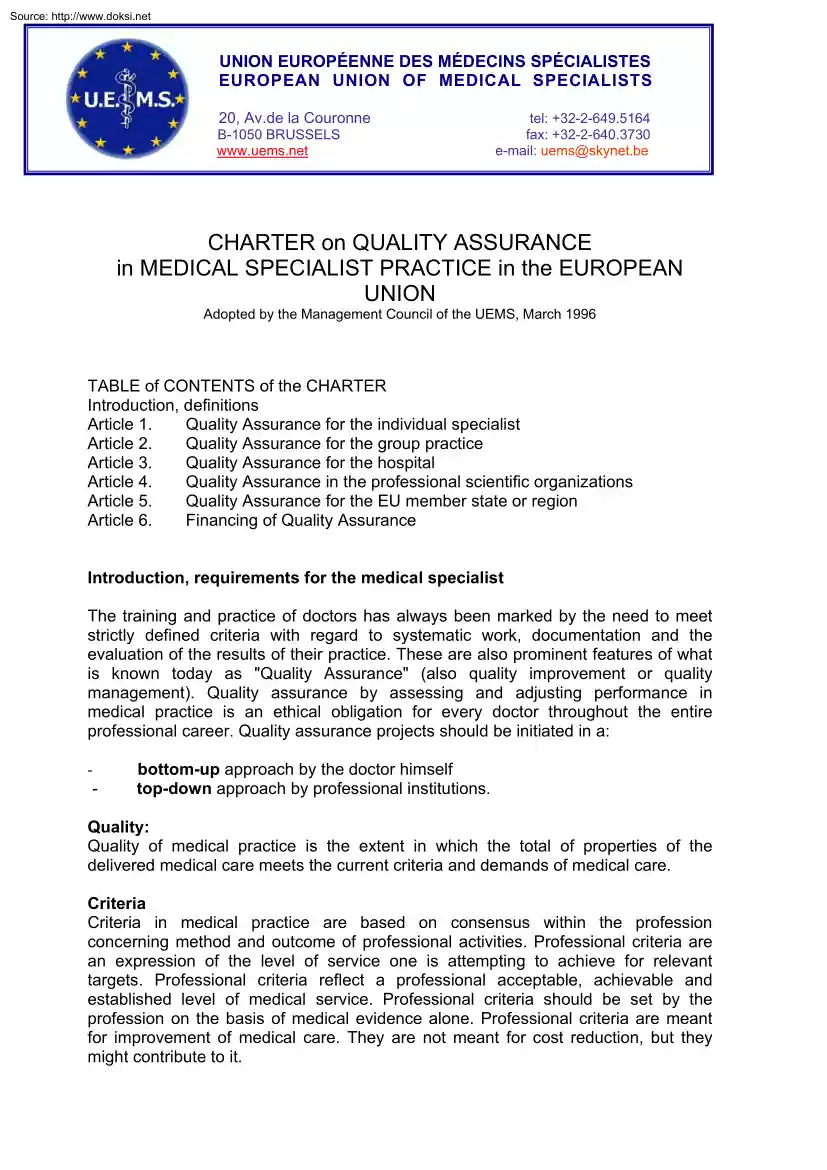
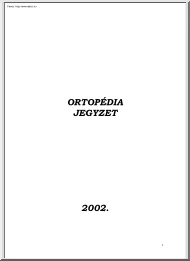
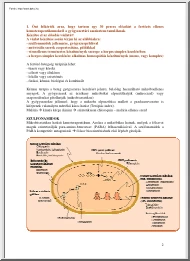
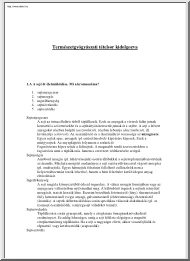
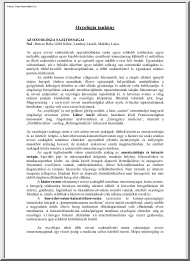
 Just like you draw up a plan when you’re going to war, building a house, or even going on vacation, you need to draw up a plan for your business. This tutorial will help you to clearly see where you are and make it possible to understand where you’re going.
Just like you draw up a plan when you’re going to war, building a house, or even going on vacation, you need to draw up a plan for your business. This tutorial will help you to clearly see where you are and make it possible to understand where you’re going.